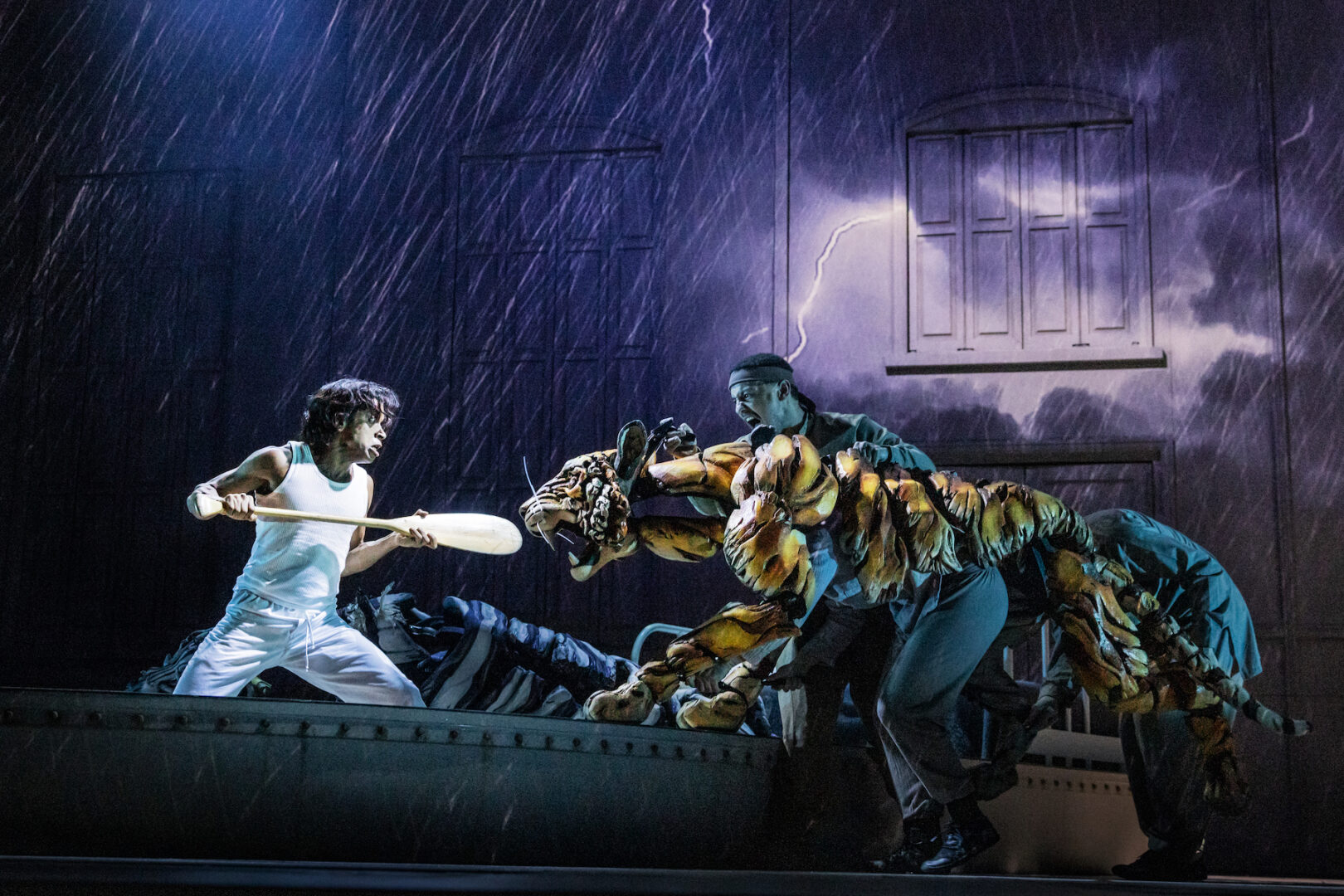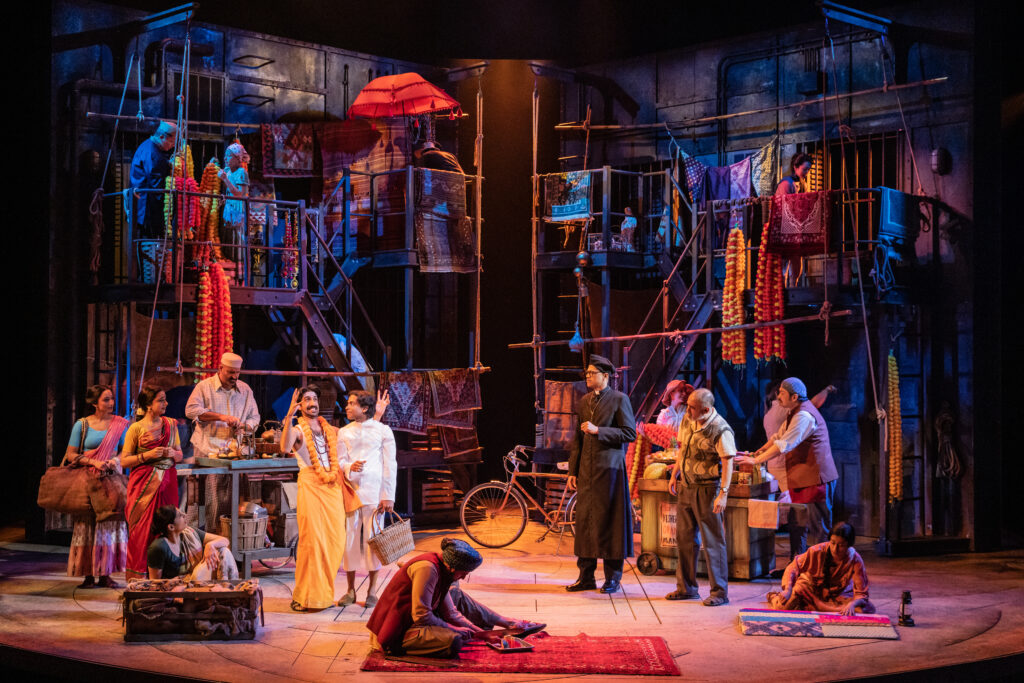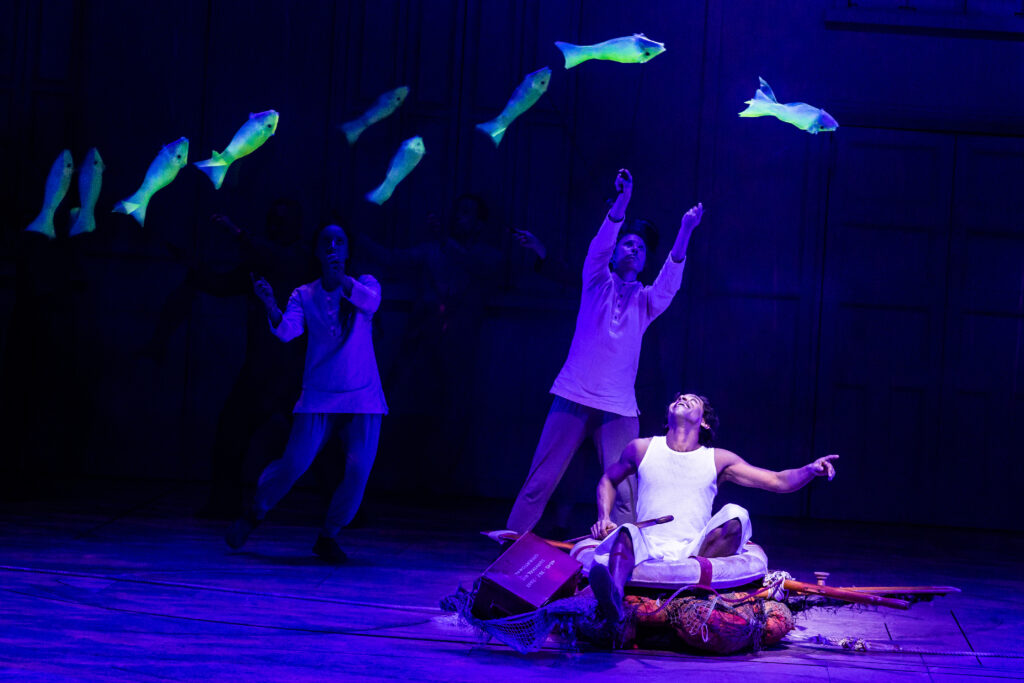
“Don’t bully me with your kindness,” says Pi Patel (Hiran Abeysekera) to Lulu Chen (Kirstin Louie), from the Canadian embassy who is visiting Pi in his hospital room in Mexico. Pi was the sole survivor of a cargo ship traveling from Pondicherry, India, en route to Canada. His family and the animals from his zoo from back home all passed away, and Pi turned up after being stranded for 227 days at sea.
[Read Related: Vishal-Shekhar Invite You to ‘Come Fall In Love’ with The DDLJ Musical at The Old Globe]
In this scene from the “Life of Pi,” that recently won in three categories at the Tony Awards, Pi’s sanity is being questioned as his account of what transpired at sea is too…fantastical. His vivid imagination and inspired attention to detail seem like a story a child would share. The character Lulu, from the embassy, is trying to gently nudge him into telling her the more ‘truthful’ account of what happened —one that doesn’t include a carnivorous tiger, a cannibalistic island, and a horrific Frenchman. Pi finally tells her to stop patronizing him. To stop bullying him with her perceived kindness. To actually listen to what he is saying.

It is this one line from the show that has become one of the most surprising and thoughtful lines I have encountered in all the art I have consumed in 2023 thus far. In fact, surprising and thoughtful are words that I would use to describe the overall musical itself. Directed by Max Webster, and adapted by the playwright Lolita Chakrabarti from Yann Martel’s Booker Prize-winning novel, “Life of Pi” is so enchanting, charming, and fantastical that with every beat of the show, I would hear gasps emanating from the crowd. The 24 cast members, many of whom were puppeteers, brought the different animals to life as we switched between the two timelines of Pi recounting his life at sea, in the hospital room, and Pi living out his life at sea.
Dreamlike to the audience and a nightmare to Pi, the scenes depicting his challenging, lonely, and magical time at sea beautifully depicted the magical realism of the novel. The choreography of the different cast members puppeteering the animals added a sense of whimsy and movement that lent itself to Pi’s childlike imagination. The lighting, the sound, the set, and the actors all came together to create a musical that is like almost being in a drug-induced trip — the set moves seamlessly from the hospital room to the boat, and back to the hospital room, and then the boat; sometimes both at the same time. You can feel the waves when Pi is on the water and see the little fish moving about. It’s as though you are with Pi throughout his journey — you feel scared when he is attacked, you feel inspired when he is in bliss, and you feel pain when he longs for his family.

The biggest marvel, though, is Richard Parker. The puppeteering behind this character is excellent — he is at once menacing, vulnerable, scared, and strong. The transformation of Parker is such that he starts out as such a grand animal and when we see him finally arrive on the island, he looks so frail and thin. You root for him as much as you root for Pi. And Pi himself is the heart of the musical. Abeysekera imbues Pi with so much confidence, playfulness, wit, and fear, that it makes you believe his stories and his relationship with the relentless tiger.
When Pi tells Lulu to not bully him with her kindness, he is telling her to not shatter his perception of the world he has lived; either it be real or constructed. Pi eventually shares with Lulu and Mr. Okamoto (Daisuke Tsuji), a representative from the Japanese Ministry of Transport, a version of events that is devoid of animals but one that is darker as it depicts human beings in their primal, selfish states. He then asks them, “Which story is better?” Lulu and Mr. Okamoto are speechless, as is the audience. In the end, it’s not about the story they believe but the one he believes. For the one he believes is the one he lived. And no one can bully him into thinking otherwise.
Photos Courtesy: Box Office Guru/PR




